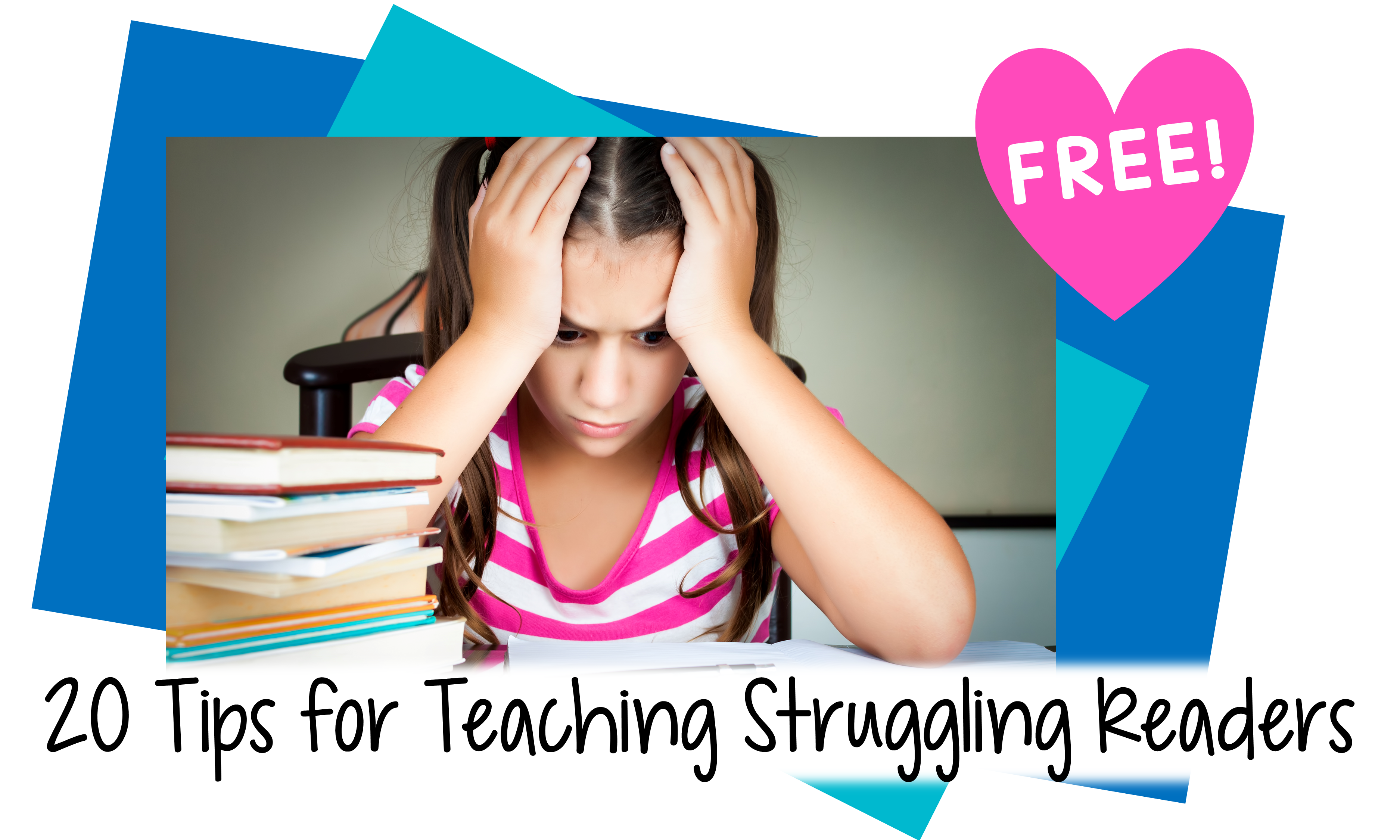Did you know that “my” previous post about phonics was written by artificial intelligence? It’s surprisingly good, but while AI can scan the web for information and put it together, it doesn’t know my opinion about phonics–at least not yet! So here it is. Do you struggle with whether or not to teach phonics? I did for a long time, but no longer. Phonics YES I was a phonics proponent even before I heard about the “phonics wars” or “science of reading.” Both my early training and my teaching experience convinced me that it was essential to teach my students...
I don’t know about you, but I can sometimes forget about teaching comprehension! There’s so much to teach beginning readers that it’s easy to put meaning on the back burner. It probably doesn’t help that I have a history of poor reading comprehension myself. Growing up, I had no idea how to focus on meaning as I read, but instead concentrated on identifying word…after word…after word… One time my first grade teacher asked me to read a page to the class. I proudly stood up and read every word correctly, word…after word…after word… Then she asked me to explain what...
I love teaching children about morphemes, because the payoff is so great! Morphemes are the smallest meaningful units of a language (e.g., -s, re-, spect, fly). After spending decades focusing on phonemic and phonological awareness, educators are now realizing how important it is to teach morphological awareness as well. Morphological awareness—the ability to use the smallest meaningful word parts to determine a word’s meaning—helps young readers by improving their: word recognitionspellingfluencyvocabularycomprehension We can start teaching morphemes in kindergarten, or even pre-K, and our knowledge of word chunks can expand into adulthood. Word Recognition and Spelling The earliest morphemes a child...
It’s November already! Halloween is over (boo-hoo!), and it’s time to think about Thanksgiving-themed lessons in early literacy. I love teaching gratitude—the state of mind that can turn around a sour mood or disappointed mindset. And I especially love introducing or reinforcing the idea of thankfulness to children, who are at the beginning of their lives. (more…)
Don’t you love getting ready to tutor a new student? You look forward to getting to know this youngster as a reader, and as a person, too. It’s wonderful to anticipate using your own teaching strengths to help someone else experience the joy of literacy. Aren’t we reading teachers the luckiest people in the world? (more…)
Seth is stuck on a word in a story. The word is irregular, nonphonetic. The letters in the word are not connected with their regular sounds, or at least the sounds he has learned so far at school. The word is night. He tries to decode word phonetically, because that is his go-to reading strategy. He associates the letters with the sounds he knows: /n/ – /ĭ/ – /g/ – /h/ – /t/…./nig-hit/. Seth is in the early Full-Alphabetic stage. He has learned to sound out words letter by letter, but doesn’t yet realize that there are some words that...
Keeping the students focused on school work during the weeks before winter vacation can be challenging for a teacher, under normal circumstances, but with the pandemic this year, holding their attention may require even more effort. Whether you are in the building, teaching remotely, or both, here are a few ideas to help you keep your primary grade students on task as their winter break approaches. (more…)
Many politicians, administrators, and educators are focusing on how much children have been losing academically since the pandemic caused schools to close last spring. I’m usually in that academic camp–worrying about the progress my students are making in reading. My training has taught me to always keep it professional as a tutor and to use time efficiently. But, a couple of months back, the parent of a child I tutor opened my eyes to what her young daughter was missing the most with online tutoring. (more…)
Remember Liza? If you read that previous Liza post, you met that preschooler when she was at the earliest stage of learning to read—the Pre-Alphabetic stage. She knew a few letters but no letter sounds, so reading was primarily a visual matching task for her. If she remembered any words, it was usually through partial visual cues, such as associating the word look with two eyes in the middle. Now we will see how Liza moved on to the next stage. As she began to learn a few letter sounds she progressed into the Partial-Alphabetic phase. Although not able to...
Tutoring reading is wonderful because you can concentrate on the needs of one child at a time. But it’s important to figure out what to focus on in each brief lesson. I say “brief” because some young readers can only concentrate for half an hour at a time. And even an hour seems short, if the parent wants only one lesson a week. (Sadly, once-a-week tutoring arrangements are becoming increasingly common, as children are engaged in more and more activities.) Yes, tutoring time is precious, so it’s important to be clear about what your focus is for each lesson. (more…)
Meet Liza. Liza was “reading” a book. The text said: I see a puppy. Liza read: “Look at the little dog.” She could match the meaning of the text to the illustrations because she heard the language pattern during the book introduction, but she was not yet ready to match her voice to the text, or to monitor her attempts phonetically. Thus, she made semantic errors (errors that match meaning). Liza was a Pre-Alphabetic reader. Young children go through different stages as they learn to read. When we figure out the stage a student is on, we can adjust...
